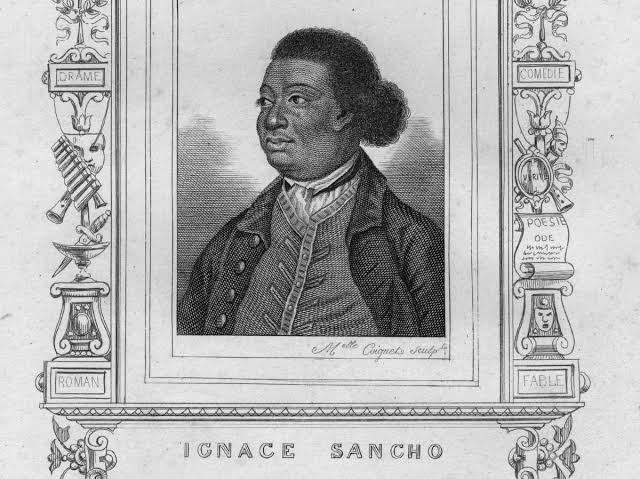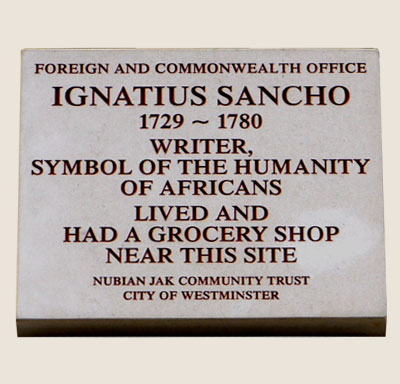Ignatius Sancho was a British abolitionist, writer and composer. Born on a slave ship in the Atlantic, Sancho was sold into slavery in the Spanish colony of New Grenada.
After his parents died, Sancho's owner took the two-year-old orphan to England and gifted him to three Greenwich sisters, where he remained their slave for eighteen years. Unable to bear being a servant to them, Sancho ran away to the Montagu House, whose owner had taught him how to read and encouraged Sancho's budding interest in literature.
After spending some time as a servant in the household, Sancho left and started his own business as a shopkeeper, while also starting to write and publish various essays, plays and books.
Sancho quickly became involved in the nascent British abolitionist movement, which sought to outlaw both the slave trade and the institution of slavery itself, and he quickly became one of the most devoted supporters of the movement. Sancho's status as a male property-owner meant he was legally qualified to vote in a general-election, a right he exercised in 1774 and 1780, becoming the first known Black Briton to have voted in Britain. Gaining fame in Britain as "the extraordinary Negro", to British abolitionists, Sancho became a symbol of the humanity of Africans and the immorality of the slave trade and slavery. Sancho died in 1780, with his The Letters of the Late Ignatius Sancho, an African, edited and published two years after his death, being one of the earliest accounts of African slavery written in English from a first-hand experience.


